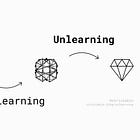Self-acceptance isn't learned
I used to think “self-acceptance” was a skill. No wonder I wasn’t making progress.
Eventually I realized self-acceptance is actually an anti-skill: self-acceptance is always there—but self-rejection covers it up. Self-acceptance doesn’t get learned, it’s the default!
Self-acceptance doesn’t get learned, self-rejection gets unlearned.
For example, I used to be fairly emotionally numb and dismissive of my own feelings. At the same time, if you’d asked me if I wanted to feel more of my feelings, even to feel all of my feelings, I’d definitely have said yes. I just couldn’t “get” myself to.
For cases like these, common wisdom is ~“just pay more attention to your feelings.” So I tried that for the next five months on my own and with help.
But the effect was only wasting five months.




